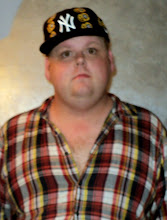
“In the future everyone will be famous for 15 minutes.” These are probably the most famous words Andy Warhol ever spoke. For a man who preferred listening and watching to talking and who often was so demure that he would prod those with the task of interviewing him into answering their own questions for him to be known for a quote that has come to define an age where being outspoken, loud and an exhibitionist is the golden ticket to Andy’s brave new world is to say the least, ironic. But beyond the cultural impact of those ten little words, Andy’s impact is actually far more wide reaching. Known for his Marilyns, Brillo Boxes and Campbell Soup Cans, Andy’s most singular achievement often gets lost in the shuffle. Warhol’s films, especially the early ones, changed cinema maybe more than anyone other than Murnau. Although all but a few border on being unwatchable they changed movies and movie making, from a formal and stylistic manner as well as from a content direction Andy’s films ranging from his early experiments like “Eat”, “Sleep” and “Empire” to his masterpiece, “Chelsea Girls” inverted everything cinema had been about since Murnau and the German Expressionists took the camera off the tripod and stopped making filmed theatre. For starters, Andy put the camera back on the tripod, gone were pans or zooms or any of the things that had some 40 years prior come to define Cinema. There are no quick cuts and actually hardly any cuts at all. Andy filmed post-modern tableau with all the decadence of the baroque and all the plot of watching paint dry. With Warhol there was no narrative, you just sat there waiting for something to happen. Sometimes it did, like Pope Ondine’s violent tirade in Chelsea Girls and sometimes it didn’t, like in Empire. Warhol referred to this “technique” as Real to Reel. If cinema created something “real” by filming something fake then why couldn’t Andy filming something “real” create something fake. In other words if the act of filming something creates the illusion of reality in the mind of the viewer than why can’t the reverse be true as well. When Fred Astaire dances down the street in Singing In the Rain we are right there with him, feeling the same joy he is feeling even though we know he’s playing a character in a movie being filmed on a soundstage with rain that isn’t even real. What Andy asks is why can’t the inverse be true, why can’t we suspend our assumptions and view as fake (i.e. Cinema) something we know is real. We know in Empire that all Warhol did was set up a camera and for 24 hours point it at the Empire State Building. If we can be emotionally engaged as Rhett carries Scarlett up the those steps to her bedroom than why can’t we be emotionally engaged by the notion of staring at the Empire State Building for 24 hours? In theory, of course, this is all well and good but in practice even I will acknowledge Empire’s complete and total unwatchablity. That not with standing, Andy did change cinema with this basic idea, everyday millions of Americans tune into TV shows that are marketed as real accounts of real people living real lives that are in fact about as real as Heidi Montag’s shiny new 38 DDD tits. We engage in the kind of voyeurism that Andy adored with no real pay off. We are marketed drama that never actually shows up. At least with Empire Warhol didn’t try and pretend that something actually was going to happen if we just wait around long enough. The Hills is maybe the most perfect example of this, despite all the talk of drama queens the most we ever get is awkward silence and uncomfortable social faux pas. Cheaters gives us drama, Spiedi gives us inconvenient and uncomfortable irritation. But we tune in every week in droves. By duplicating the sheen and polish of plot driven narrative TV Mtv has convinced us that watching LC answer phones and fret over whether Brody will or won’t change his Facebook status is actually must see TV. Furthermore, take Mtv’s latest venture in the theatre of the absurd, My Life as Liz. Unlike The Hills, My Life as Liz actually is a plot driven traditional scripted drama, but whereas The Hills cops the sheen and polish of scripted drama, My Life as Liz co-opts the handheld, confessional style that Mtv has mined with Truelife and 16 and Pregnant. The Hills is “real” but looks fake and My Life as Liz is fake but looks “real”. Andy would be so proud that his Tivo would be bursting.


Your article gave me real insight into Warhol’s venture into films; I don’t know all the people mentioned in the article if I did, I am sure the piece would be much more instructive. I did enjoy reading it, I could say it was like reading a New York Times essay however I am no Editor- it was very enjoyable reading.
ReplyDelete